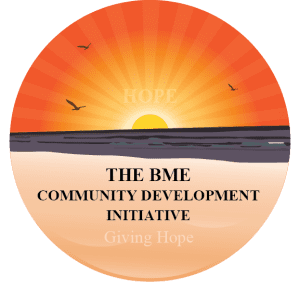Youth Violence Prevention: Education Reform: Equipping Youth for the Future

Imagine a classroom today: students tapping on tablets, accessing information instantly that once required hours in a library. Yet, paradoxically, many education systems have not fundamentally changed in decades. As the world races forward, our schools often lag. A stark warning comes from global experts: at current rates, by 2030, over half of the world young people will not have the basic skills needed for the modern This skills gap is not just about technical know how; it encompasses critical thinking, creativity, and adaptability, the very competencies tomorrow economy will demand. Policymakers face a pivotal task: to reform education so the next generation can thrive in a rapidly changing world.
The Challenge: Several factors contribute to this looming skills crisis. In many regions, curricula remain heavily focused on rote learning and outdated content. Students might memorise facts about the 19th century, yet graduate without knowing how to code, analyse data, or distinguish reliable information online. The “fourth industrial revolution”, marked by AI, automation, and digitalisation, is transforming jobs dramatically. It’s telling that nearly three-quarters of companies globally are adopting advanced technologies, yet education in lower income countries, especially, is struggling to keep pace. Furthermore, inequality in education means that in some countries, only a fraction of youth complete secondary education at all. If current trends continue, many developing countries will have a majority of youth unprepared for jobs of 2030 and beyond
Key Reforms:
- Curriculum Overhaul: We must shift from fact recall to skill application. This means integrating STEM (science, technology, engineering, math) and soft skills (communication, teamwork, problem-solving) into all subjects. Countries like Finland have experimented with phenomenon based learning teaching by topics (like climate change or entrepreneurship) that cross disciplinary lines, giving students a richer, real world context for knowledge. Including digital literacy and coding basics early on is vital; even if not every student becomes a programmer, understanding how technology works is akin to literacy in this century.
- Teacher Training and Support: Educators are the linchpin of reform. Investing in continuous teacher training ensures they are prepared to teach new material and use new pedagogies (like project based learning or flipped classrooms). In Singapore, for instance, teachers regularly upskill, which has helped their students consistently excel globally. We should also empower teachers with flexibility, less “teach to the test” and more encouragement to innovate in their teaching methods.
- Lifelong and Adaptive Learning: The future of work likely involves multiple career changes and continuous learning. Education policy should extend beyond K-12 schooling to create pathways for lifelong learning. This includes vocational training, community colleges, online certification programs, and other avenues for young adults to reskill or upskill. For example, Germany robust vocational system provides apprenticeships in a wide range of trades, giving non university bound youth valuable skills and jobs.
Bridging the Inequality Gap: Within countries, disadvantaged communities often have poorer quality schools, outdated materials, or fewer qualified teachers. Targeted funding is needed to ensure no youth is left behind, be it upgrading rural schools with internet access or providing scholarships and stipends to keep kids in school. Public private partnerships can help; tech companies could adopt schools to provide equipment and training, for instance.
Time is of the essence. Each year we delay reform, millions of students graduate unprepared, and our economies lose potential innovators and skilled workers. On the other hand, imagine the payoff if we get it right: a generation of young people fluent in technology, capable of critical thought, and ready to solve problems we can not yet foresee. These are the entrepreneurs who will create jobs, the engineers who will build sustainable infrastructure, and the informed citizens who will uphold democracy. In essence, education reform is nation building. By committing resources and political will to modernise education now, policymakers can ensure the youth of today become the driving force of a prosperous tomorrow.
Source: theirworld.org.



